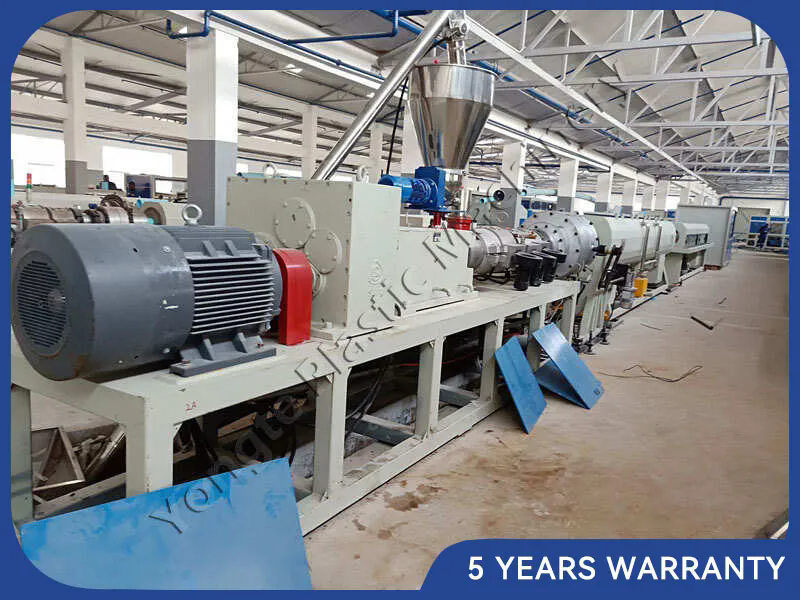Plastic Pipe Extrusion Machine: A Key Driver in Modern Manufacturing
2025-05-29
The Plastic Pipe Extrusion Machine plays a vital role in the production of plastic piping systems, which are widely used in industries such as construction, agriculture, water supply, gas distribution, and telecommunications. As the demand for durable, lightweight, and corrosion-resistant piping grows, plastic pipe extrusion technology continues to evolve—delivering efficiency, precision, and scalability in pipe production.

What is a Plastic Pipe Extrusion Machine?
A Plastic Pipe Extrusion Machine is an industrial machine used to manufacture plastic pipes through the process of extrusion. This involves melting raw plastic material (usually in the form of pellets or powder), forcing it through a die to shape it into a continuous pipe, and then cooling and cutting the pipe to desired lengths.
Key Components of the Extrusion Line
1. Extruder: The core unit where plastic is melted and pressurized. It includes a hopper, barrel, screw, and heating elements.
2. Die Head: Shapes the molten plastic into a cylindrical pipe. Different dies are used for pipes of varying diameters and wall thicknesses.
3. Vacuum Calibration Tank: Cools and sets the shape of the pipe using water and vacuum suction for dimensional accuracy.
4. Cooling Tank: Further cools the extruded pipe to maintain its structural integrity.
5. Haul-Off Unit: Pulls the pipe continuously through the extrusion line at a controlled speed.
6. Cutter or Coiler: Cuts the pipe into specified lengths or coils it for transport and storage.
Types of Pipes Produced
Plastic pipe extrusion machines can produce various types of pipes, including:
PVC (Polyvinyl Chloride) Pipes: Commonly used for plumbing, drainage, and electrical conduit.
PE (Polyethylene) Pipes: Ideal for water supply, gas distribution, and irrigation.
PP (Polypropylene) Pipes: Suitable for chemical and industrial applications.
PPR (Polypropylene Random Copolymer) Pipes: Used in hot and cold water systems.
Advantages of Plastic Pipe Extrusion Machines
High Efficiency: Continuous production with minimal waste.
Consistency and Accuracy: Advanced controls ensure uniform pipe size and thickness.
Customizability: Capable of producing a wide range of pipe sizes and materials.
Cost-Effective: Reduced labor and energy consumption through automation.
Eco-Friendly Options: Can be configured to work with recycled plastics and energy-saving systems.
Applications Across Industries
Construction: Water supply, sewage systems, electrical conduits.
Agriculture: Irrigation systems, drainage pipes.
Telecommunications: Cable protection ducts.
Gas and Oil: Distribution pipes with high pressure resistance.
Industrial: Chemical-resistant piping for factories.
Future Trends
With increasing demand for sustainable and smart manufacturing, the future of plastic pipe extrusion lies in:
Automation & IoT Integration: Real-time monitoring and control for quality and efficiency.
Recycling Technology: Machines adapted for recycled and bio-based plastic materials.
Multi-layer Extrusion: Pipes with specialized layers for enhanced performance.
Energy Efficiency: Low-energy heating systems and precision cooling mechanisms.
Conclusion
The Plastic Pipe Extrusion Machine is an essential tool in modern industrial production. With its ability to produce high-quality, reliable, and cost-effective plastic pipes, it supports a wide range of applications crucial to infrastructure and development. As technology continues to advance, extrusion machines will become even more intelligent, efficient, and environmentally friendly—shaping the future of piping systems around the world.


